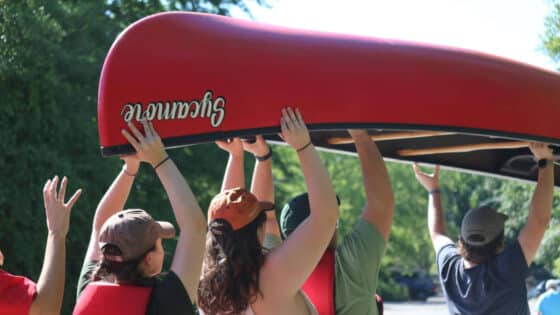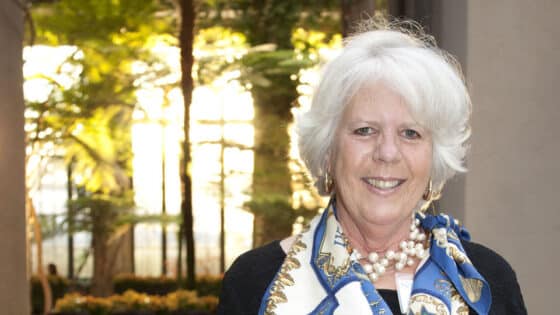In 1989 Stroud Water Research Center helped establish the Maritza Biological Station at the base of the Orosí Volcano in the Área de Conservación Guanacaste of Costa Rica. On March 22, 1991, Costa Rica President Rafael Calderon dedicated Maritza as a permanent biological field station with an emphasis on freshwater research. Since the early 2000s a Costa Rican nonprofit lead by Steve Stroud, Asociación Centro de Investigación Stroud (ACIS), has overseen legal and administrative matters at Maritza for the Stroud Center. Maritza is staffed by two long-term employees, Rafael Morales Cueto, field station manager and lead technician, and Cristian Collado Lopez, field assistant and technician. For the last 29 years, Maritza and ACIS have been the headquarters and foundation for our tropical research programs throughout Central and South America.
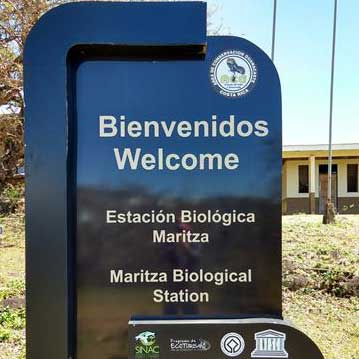
Earlier this year, a team of five Stroud Center scientists — Diana Oviedo, Jinjun Kan, Melinda Daniels, Scott Ensign, and Lou Kaplan — visited Maritza Biological Station and the Área de Conservación Guanacaste. The eight-day trip allowed the team to collect preliminary data for future research, scout future research sites, and network with scientists and administrators of Guanacaste National Park.
The scientists worked under the rainbows of the Orosí Volcano in Costa Rica to survey a dozen streams. They explored the diversity of life coating the streambed and collected samples to analyze for DNA and organic chemistry back at the Stroud Center in Pennsylvania. These data are helping Kan and Oviedo-Vargas unravel the complex relationships between plants and microbes that govern water chemistry in the streams draining Maritza’s rainforests.
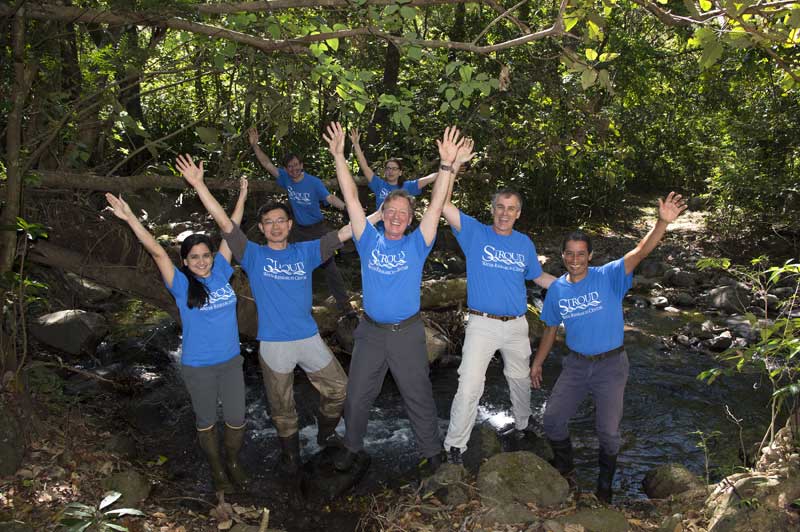
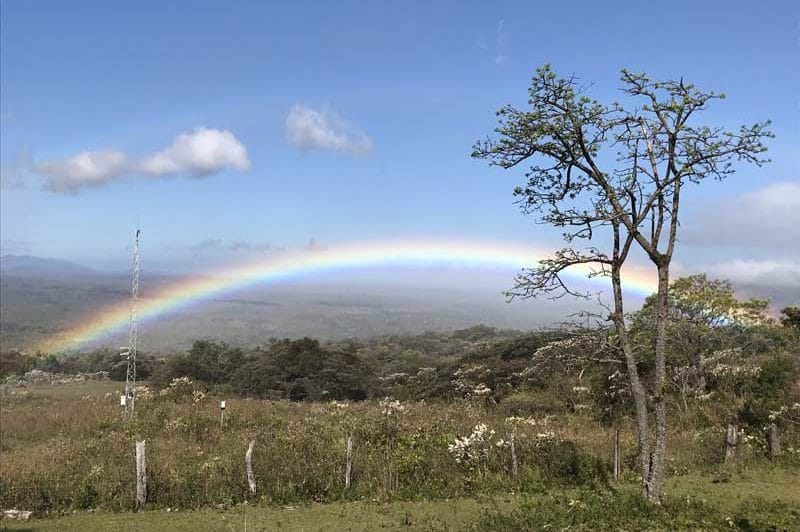
The team’s visit occurred during the dry season when some rivers run dry, which allowed Daniels, with an extra hand from Ensign, to measure logs and leaves that are usually hidden below the water. These data are a critical link to studying the power of floods to form river channels and the role of river channels in linking rain forests with the dryland forests below.
Leading the way by foot or via Land Cruiser, Station Manager Rafael Morales Cueto and Technician Cristian Collado Lopez ensured an efficient and safe trip for the team, while Marietta Collado made it memorable with exquisite Costa Rican cooking.
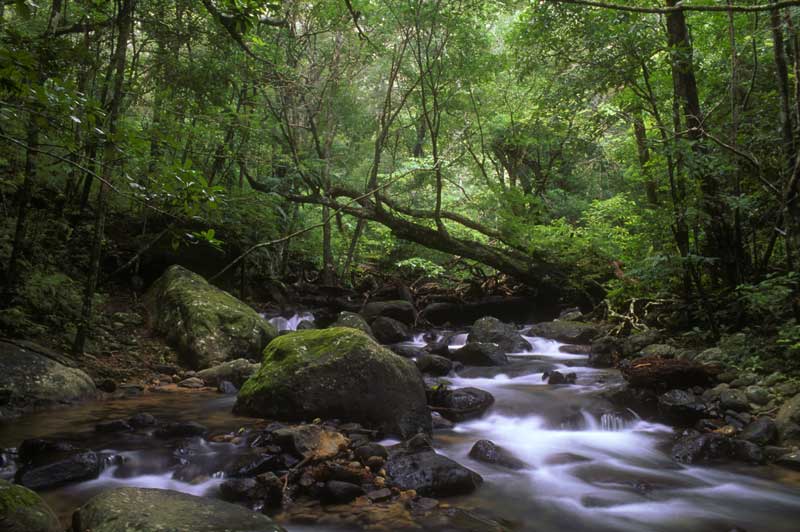
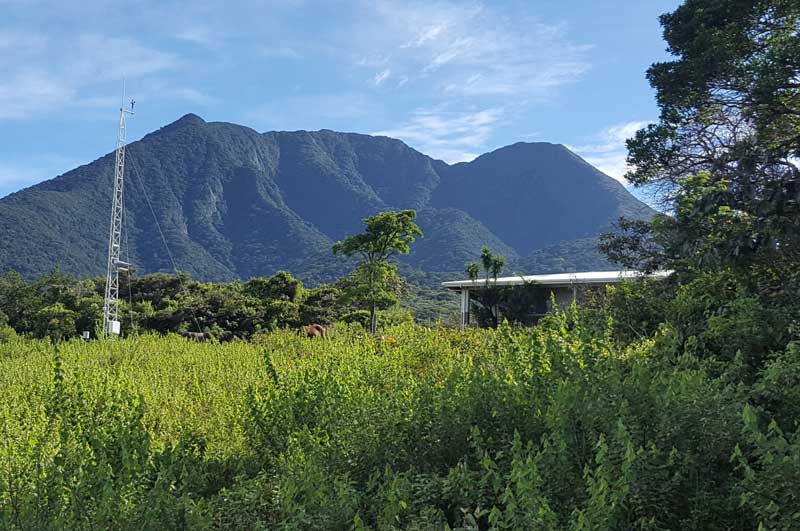
The Aftermath of Tropical Storm Nate
The trip also allowed the scientists to see changes to the ecosystem caused by Tropical Storm Nate. In October 2017, Nate devastated parts of Costa Rica, Nicaragua, and Honduras. In Costa Rica, 400,000 people were left without running water and power. Twenty-two people died across this region. The heavy rain caused landslides and floods that destroyed bridges and roads, blocking many vital transportation corridors.
Nate also damaged our facilities and roads around Maritza. The access road was washed out, and swollen rivers dumped thousands of tons of mud and boulders at road crossings and bridges. Efforts are underway in the region to repair damaged bridges, roads, and facilities.
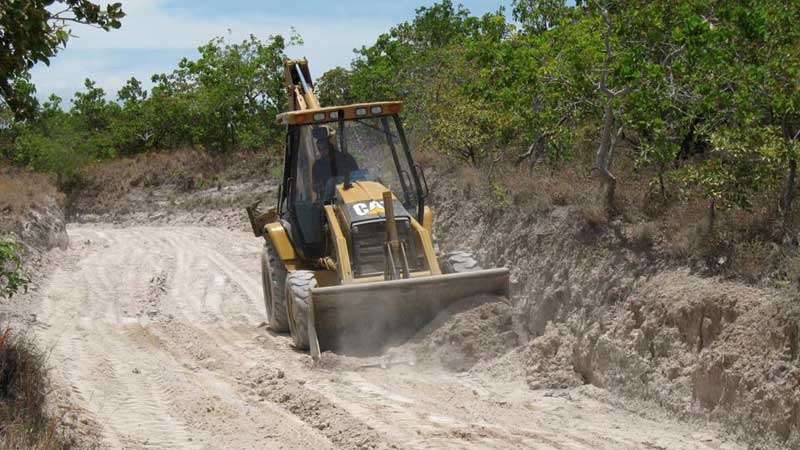
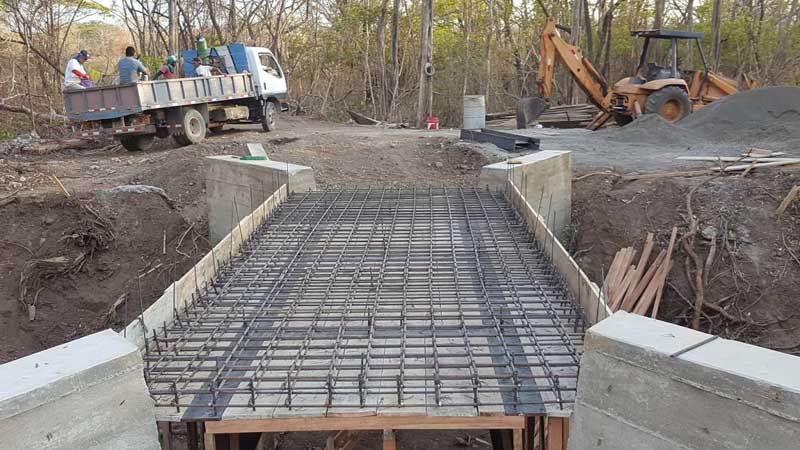
Upcoming Adventures
Stroud Water Research Center and Upland Country Day School are currently collaborating on a plan for a weeklong science enrichment trip to Costa Rica next summer for middle school students. Student research assistants will help Diana Oviedo-Vargas, Ph.D., with some of her experiments and explore different tropical habitats through additional activities at Maritza and Santa Rosa field stations and nearby locations. Recent presentations to parents were well attended and showed enough interest to move forward with more detailed planning and preparation programs to take place throughout this school year.
Do you know a school group interested in watershed education? Email educationprograms@stroudcenter.org

